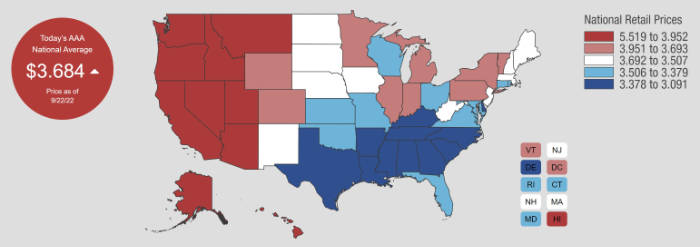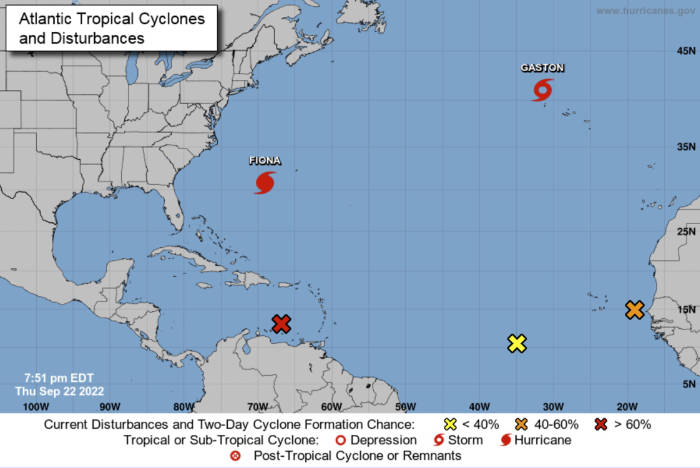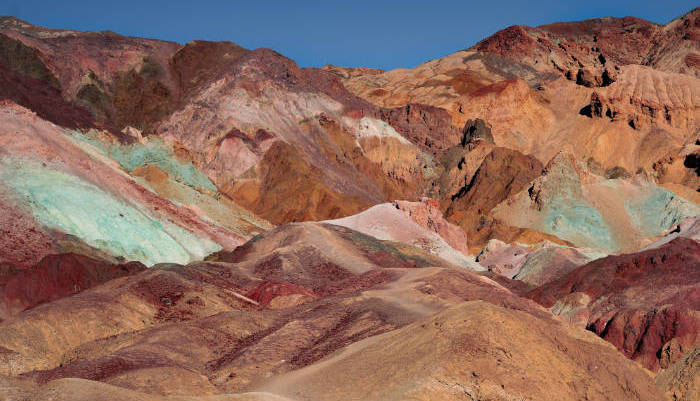In short:
- Cat 4 Hurricane Fiona should hit Canada’s Eastern Atlantic provinces this weekend.
- US gasoline prices have started rising again in some states.
- California temporarily banned insurance companies from dropping customers in wildfire-hit areas.
National Preparedness Month Challenge
Each Tuesday and Friday throughout September, the news roundups will feature a section of TP’s beginner’s checklist and introduce a conversation topic or a challenge to work on. After reading the highlighted section in the roundup, follow the instructions, and join us on Discord to discuss and get support. Read the introductory post and the previous topic here.
Today’s topic: Learn, practice, and plan!
Having gear is one thing, but survival experts know that a great prep is a mix of gear, skills, planning, and practice.
Which means you are not actually prepared if you simply buy some gear, throw it in storage, then pat yourself on the back! #badprepper!
You do not want to rely on a product in an emergency that you’ve never used before. Even if something seems simple now, your brain can turn into a bowl of mush when faced with chaos.
For example: Think a car window breaker would be simple?
And there are too many crappy “survival” products that fall apart in the field when you need them most. Or maybe that lifeboat food you bought doesn’t sit well with your stomach, which you don’t realize until dealing with diarrhea at the worst time.
Once you’ve got some of the basic gear in place across your home and go-bags, it’s time to start learning critical skills.
For the challenge:
1. Finish reading the section about learning and practicing.
2. For the next couple of days, practice one of two things, such as:
- Cut a piece of rope/paracord and learn the top three survival knots.
- Learn how to sharpen an old kitchen knife using random stuff.
- Go camping or to your backyard and try sleeping in your emergency sleeping bag, pad, and/or tent to learn if they’re comfortable.
- Make and maintain a fire with what you can find around. Bonus: Use a ferro rod 🙂 Be safe.
- Learn how to use a tourniquet.
- Cook tonight’s dinner on your camp stove.
2. Join us on Discord anytime after 12 pm ET in the #national-preperadeness-month channel for discussions and support. If you’re not on Discord, feel free to comment below.
Economy, food security, supply chain, energy
The Fed raised interest rates by another 0.75%. Here’s a breakdown of how that could affect you. Forecasts show another large hike likely by the end of the year.
Average gasoline prices in the US increased by a penny to $3.68 a gallon. Increased demand due to planned and unplanned maintenance work at refineries on the West Coast and Midwest contributed to the increase. Click the image below for up-to-date prices and state-by-state breakdown:

Europe needs to cut energy consumption by 15% to cope through the winter despite limited energy supplies. Here are some ways Europeans are saving energy:
- Prohibiting shopfronts, illuminated ads, and public monuments from being illuminated at night.
- Driving slower than 100Km/h (62 mph).
- Taking five-minute showers.
- Fining shop owners who leave the doors open of air-conditioned stores.
- Banning heating in private pools.
- Heating public buildings to a max of 19 C (66F) during winter and a min of 27 C (81 F) during summer.
- Turning radiators off for at least one hour per day.
- Regularly defrosting freezers.
- Do laundry twice a month instead of once a week (a tip from a family member living in Czechia).
- Use root cellars or caves to store food (see below):
Apple farmers in Predaia, Italy, are using hill caves beneath their fruit orchards to store some of their harvest to cut energy bills https://t.co/2jPvTBjIoo pic.twitter.com/96UjnTJq6e
— Reuters (@Reuters) September 22, 2022
Australian farmers are investing in robots and autonomous vehicles to combat worker shortages. Labor shortages are also affecting American farmers, and the Farm Workforce Modernization Act could boost the pool of potential farm workers in the US.
Study: Climate change could wipe $108 billion from the US property market.
Climate change, extreme weather, natural disasters
Hurricane Fiona strengthened to a Cat 3, hitting Turks and Caicos…
#Fiona this morning in Grand Turk! The Turks and Caicos islands getting slammed #HurricaneFiona #hurricane pic.twitter.com/LlYO634n5O
— Gabygdj (@diottejoly) September 20, 2022
…and is currently a Cat 4 and expected to hit Eastern Canada for a once-in-a-lifetime storm:
Here is the latest update on #Hurricane #Fiona.
Hurricane Fiona has the potential to be a landmark weather event in Eastern Canada this weekend, and we encourage the public to continue to monitor the forecasts regularly.
Read the new bulletins at: https://t.co/QURfkCQp7W pic.twitter.com/RSdj9L75RI
— ECCC Canadian Hurricane Centre (@ECCC_CHC) September 22, 2022
A significant hurricane threat is looming over the Gulf of Mexico next week:

Click below for the latest maps and forecasts:

Some things you can do to prepare your house days before a hurricane hits:
- Document your possessions. If they’re destroyed, having documentation makes the process of insurance claims, police reports, and government relief programs much simpler, faster, and more likely to succeed.
- Tie down your roof, deck, and dock. Take the time to inspect it, looking for loose shingles or panels that strong winds can catch. To keep the roof from blowing away, consider retrofitting the connection between the roof and wall struts with metal straps, like those made by Simpson Strong-Tie. The same theory and equipment applies to sheds, patios, and docks. A few hours of work and $100 can prevent a ton of destruction later.
- Gutters and water flow. Clear gutters and drains so they pull water away from your house. Secure loose gutters, downspouts, vents, or other exterior features so they don’t blow away.
- Yard. Trim shrubs and trees so they can better withstand storms, and to prevent falling limbs from damaging your home. Replace gravel in your landscaping with bark, because if it’s going to turn into wind-driven shrapnel, soft wood is better than hard rock.
- Home and garage doors. Normal doors should have three hinges and a deadbolt lock with at least 1-inch throw length. Typically the largest opening to your home, garage doors can be sucked out, blown it, twisted off their tracks, or buckle from wind-blown debris impacts. You can replace your whole door with a wind- and impact-rated one. An easy, cheaper option is installing vertical bracing to a garage door.
A 6.8 aftershock hit Mexico just a couple of days after a 7.6 earthquake. Two dead:
https://twitter.com/AmirAliNemati07/status/1573062793108094994?s=20&t=UXN1WkaaGbtXep1CZxRoxA
Monday’s earthquake in Mexico created a desert tsunami in California’s Death Valley. No, not a sand tsunami, mind you. The earthquake caused waves up to 1.2 m (4 ft) high in Devils Hole, a partially water-filled limestone cave that is hundreds of feet deep:
California temporarily banned insurance companies from dropping customers in areas affected by recent wildfires. Insurance companies will need to preserve residential insurance for one year for Californians who live near one of several major wildfires that have burned across the state in recent weeks. The moratorium will affect policies covering about 236,000 people in portions of Placer, El Dorado and Riverside counties.
Study: Coastal cities in South and Southeast Asia are sinking fastest. Sinking land is particularly common in coastal cities built on “flat, low-elevation river deltas,” where groundwater and oil extraction are driven by rapid growth and urbanization. Cities in Indonesia, Myanmar and India have some of the highest rates of land subsidence. Jakarta, one of the fastest-sinking cities, is set to be replaced as Indonesia’s capital after years of rapid growth, congestion, and pollution
The rest
As the Earth warms, architects and city planners are finding new wisdom and integrity in centuries-old building practices using local, natural materials.
FDA releases additional doses of Moderna’s Covid booster amid shortages.
Anxiety screening is now recommended for all American adults under 65.

You are reporting the comment """ by on